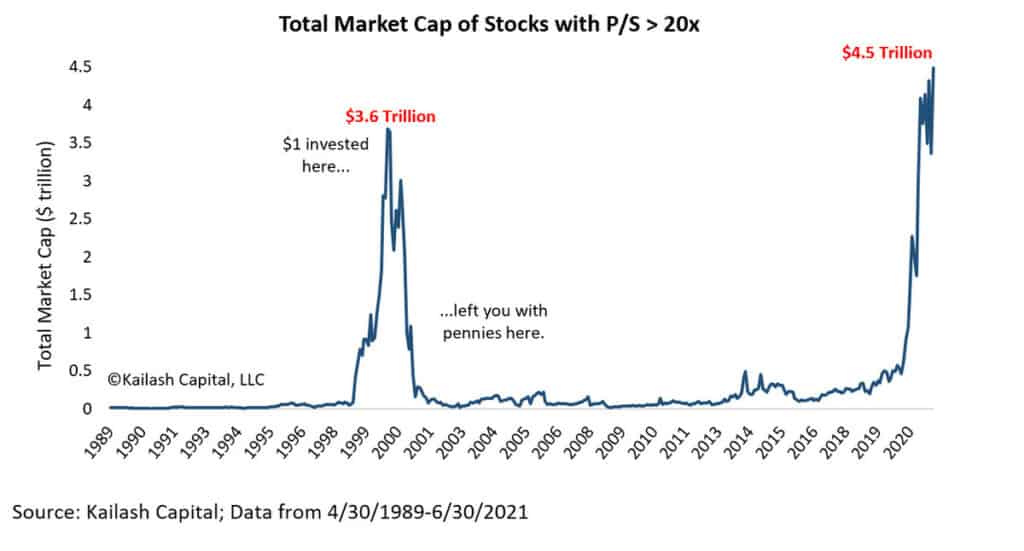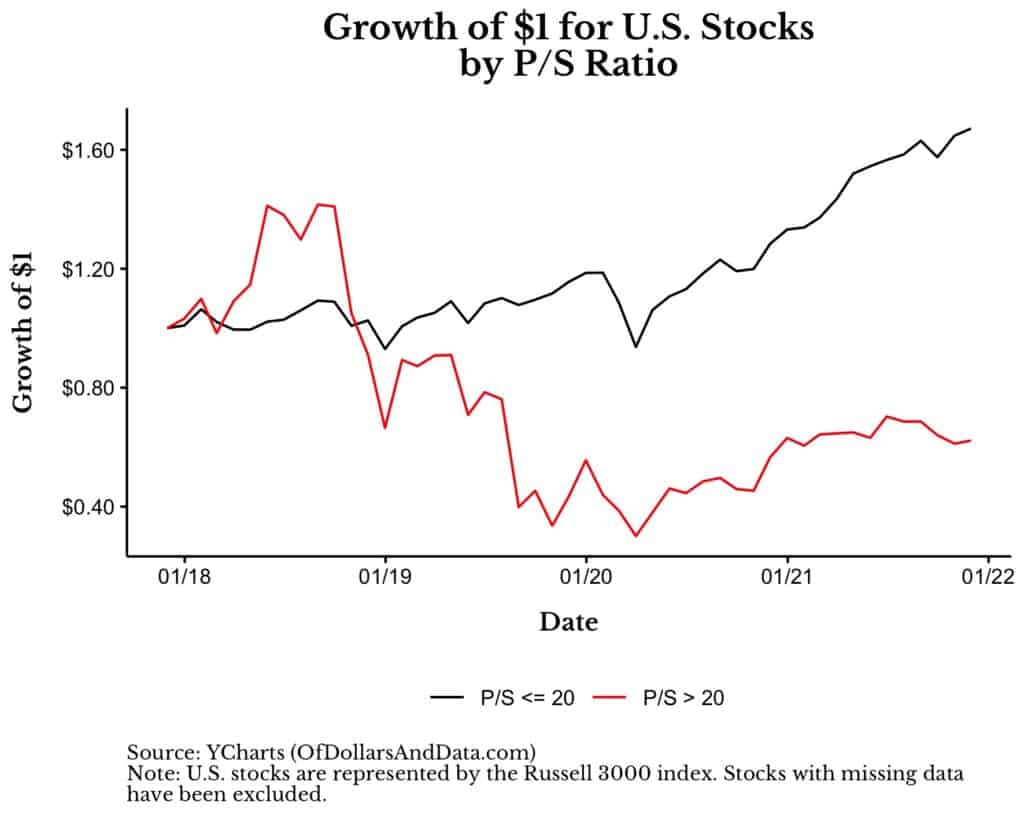The short answer: yes
The Friday after Thanksgiving brought about a significant sell-off in the stock market, with the S&P 500 down by over 2%. That’s the largest drop in the past two months, but not all that unusual or alarming in the grand scheme of things. More concerning to me is some alarming metrics around overall market valuation. Nick Maggiulli at the blog “Of Dollars And Data” had a good post recently about the prevalence of high (or rather extreme) price/sales (P/S) ratios in the market.
Here is the most concerning chart:

So about $4.5 trillion worth of stocks with a price/sales ratio over 20x? That’s larger than the dot com bubble.
And for those companies hoping to justify a P/S multiple above 20x? Take a look below:

The lesson here is valuation matters. At some point, the price you pay relative to the expected value generation of an investment will make a difference to the overall performance of the investment.
So what can you do right now?
Some might say, “Sell everything and go to cash right now!” But I don’t think this makes much sense because we have no idea how long the stock market can continue going up. It could be 1 day, 1 month, 1 year, or 10 years or longer. If you sell now, and the market continues to perform well, then you’ll miss out on those investment gains. As Peter Lynch once said, “Far more money has been lost by investors preparing for corrections, or trying to anticipate corrections, than has been lost in corrections themselves.” And this really makes sense. Lots of people “go to cash” only to watch the market continue to go up, up, up. Then those same investors are presented with a difficult choice. They can buy back in at a higher price, or wait and hope that the market will drop back down. Often, these investors will wait years before reinvesting. By that time the lost gains can make a real difference in their financial well being.
Focus on what you can control
We can’t really control what the market does, only what our reaction is. So the first thing you should do is review your financial or investment plan. You should have a good idea what your finances will look like if the market drops 10%, 20%, or even 50%. If a 50% decline in stocks would force you to sell near the bottom (e.g. a very bad investment outcome), then you’re taking on too much risk right now. Revisit your asset allocation and see if it still makes sense in the context of your overall financial picture. Try to reduce the costs of your investments or financial advice.
If you can’t shake the notion that the market is in for a significant drop, then you can adopt Nick’s advice from the article and “sin a little.” Sell a small portion of your stock positions or rebalance more frequently. Reallocate from growth stocks to value stocks, or from US stocks to International stocks. Perhaps stop reinvesting dividends for a few months.
Stay focused on the long term
One last thing to remember is that investing is a long-term endeavor. Large market drops can be scary, but are often temporary. Staying the course and keeping a long-term perspective are probably the most important investing tips I can give you.

